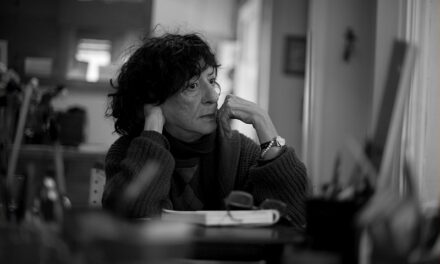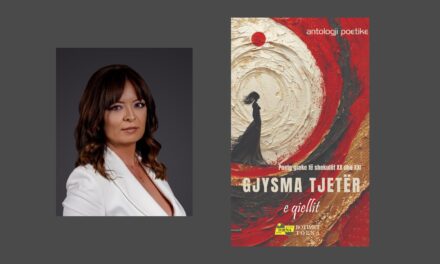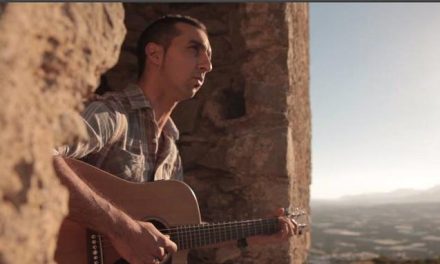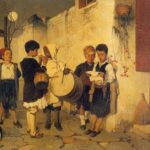Vagelis Marinakis was born in Korinthos and studied in Athens. He is a political scientist, with an MSc in “Public Policies” from the University of Peloponnese and an associate of the European & International Analyses Circle of the Institute for Alternative Policies ENA. Since 2022 he has worked in Greek online and print media such as kosmodromio.gr, documentonews.gr, travel.gr, rosa.gr, dimarxos.gr, olafaq.gr. In 2024 he joined cnn.gr. Matador is his first book.
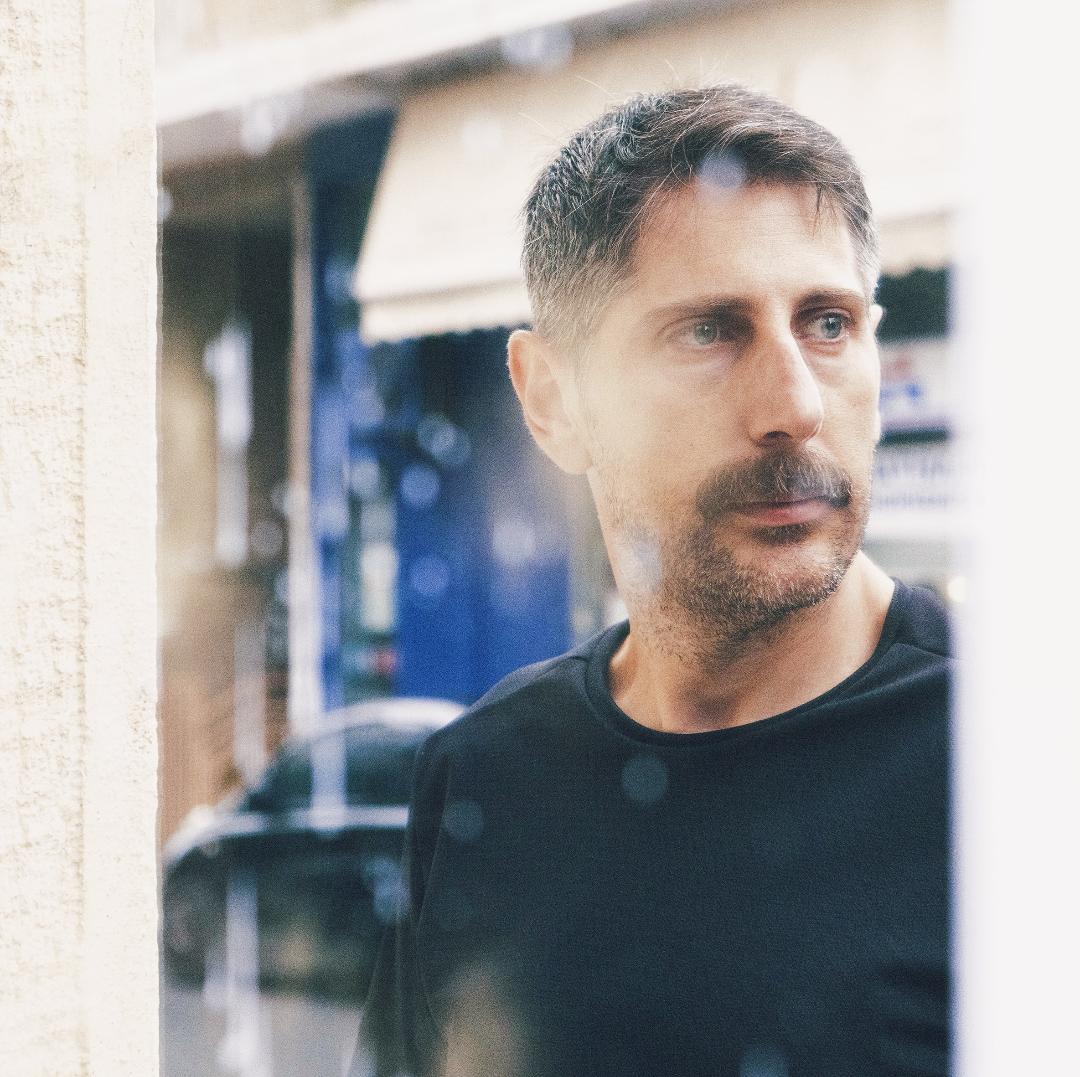
© Aspa Koulira
Your first writing venture Matador was recently published by Kappa Ekdotiki. Tell us a few things about the book and its title.
The book is a first-person narrative recounting a few days in the life of a man experiencing romantic bereavement in a generally negative social and cultural environment. Athens and Sicily are the main locations of the plot, August 2023 the respective time. And his beloved the recurrent point of reference.
The body of the city is closely interrelated with the body of a woman in the book. Where does the personal and the intimate meet the social and the collective in your writings?
The meeting of the individual and the collective is inescapable, for the simple reason that we do not live outside our time, we are products of it. We fall in love and create within specific social conditions, we are bound to a given geography. The moments we have lived through and the places that have welcomed it function like the walls of a house that do not simply enclose animate beings but dynamically reshape them. The anthropotypes that shape our environment are also part of our own mosaic. The intersection of personal experience with the present is inevitable, especially for a hero in Greece today.
Your writing gives the impression of a camera recording urban space and its dwellers at times in their most mundane at others in their most intimate moments. How are pictures transformed into words in your work?
I move between an initial concept and a certain methodology. There is the city and its people, the look at everyday life and memory. These are the materials of the canvas. I converse with myself, take notes and in the evening, these are usually formatted into word texts. There is, as you rightly point out, the idea of the camera in terms of focusing on the faces, their particular traits and habits. I believe that for 20th and 21st century creators, cinema is a key source of reference; we have all been placed at some point in the shoes of a great cinematic hero.
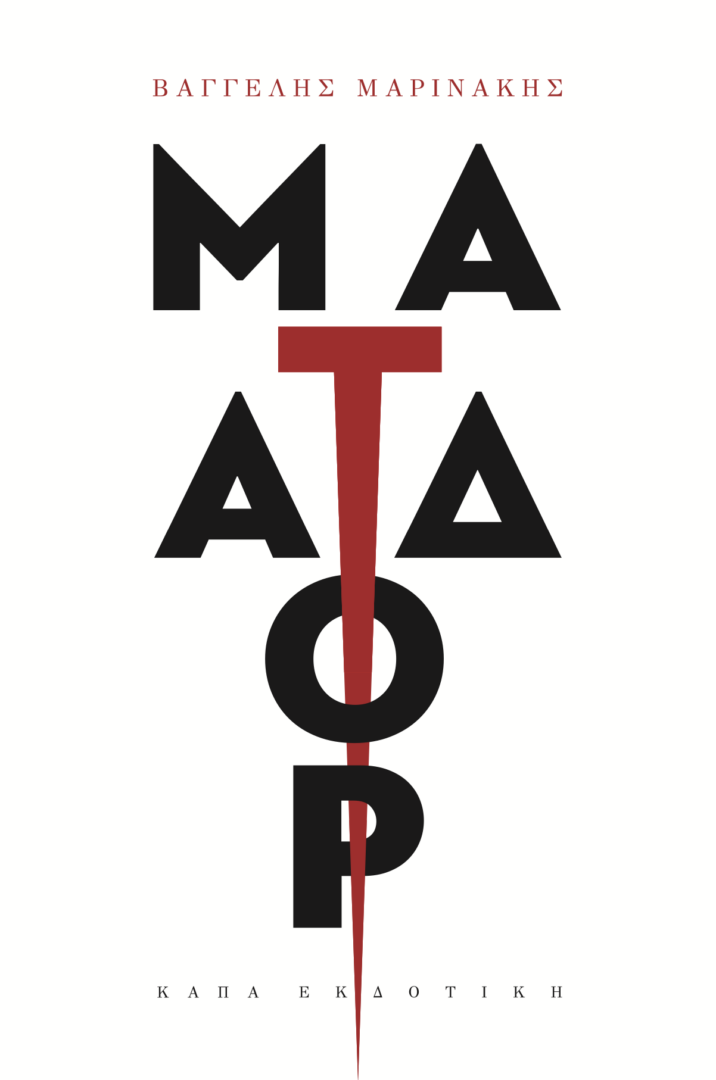
How does literature converse with its surrounding reality? Does writing act as a way to record or transform it?
Both. Recording is the first stage in writing; even unintentionally, every work is in conversation with what surrounds its creator. In my book, as the excellent writer and friend Haris Kalaitzidis rightly observed, the hero doesn’t go further, he doesn’t propose solutions to the reality that suffocates him. There is this entrapment that I think characterizes a whole generation, including me as well.
On the other hand, writing is an act of intervention par excellence; it has by nature an externality, it intervenes in reality because it acts on people’s consciences, it “sets up” a discussion between them even if they don’t like the book they read.
What about language? How has your work as journalist influenced your literary language? Would you say that journalism and literary writing constitute communicating vessels?
Contact with current affairs certainly makes things easier because it enables you to broaden your scope, to draw from a multitude of attitudes, to relate them to the surrounding atmosphere. But it’s just a possibility, a privilege if you will. Otherwise, journalism and literature are not the same; there is even the trap of writing as a journalist and vice versa, managing to be boring in both cases. I think the ideal – as far as I’m concerned at least – is to leave one suit behind when you change to the other. I’ll resort to platitudes in attempting to answer whether we’re talking about communicating vessels: yes and no.
Which are the main challenges new writers face nowadays in order to have their work published? What role do the social media play in the promotion of new literary voices?
I consider that the greatest obstacle is the lack of support on the part of the state. There seem to be no initiatives and synergies for the support of authors, which could, if things were different, provide writers with valuable encouragement and at the same time revitalise neighbourhoods and local communities. Beyond that, the attitude of certain publishers does not help either; there are cases where young prose writers and poets are treated as easy customers. I am not one of those who defend a strictly professional literature and I understand the need of some publishers to protect their reputation or to survive in a field where unpaid debts, especially from the big chains, are “raining down”. But a strictly market-oriented attitude does no good.
As for social media, of course their role is not to be underestimated; they are part of our lives now, a means of communication and of shaping our aesthetics at the same time. There were times when a post intrigued me to look for something, it’s perfectly normal. They, of course, allow for the lightness of short witty remarks, which may be a bad thing because they also allow for a greater superficiality than in the past. We’ve all gotten annoyed with accounts of people attracting attention with airs and graces in the form of a digital post. But somehow justice will be served, and those intent on “scratching” the surface will bring the good stuff out into the open. In this sense, social media opens us up to a new world. Whether we stick to the obvious and the easy is our responsibility.
*Interview by Athina Rossoglou
**Ιntro photo by Aspa Koulira
TAGS: LITERATURE & BOOKS | READING GREECE


